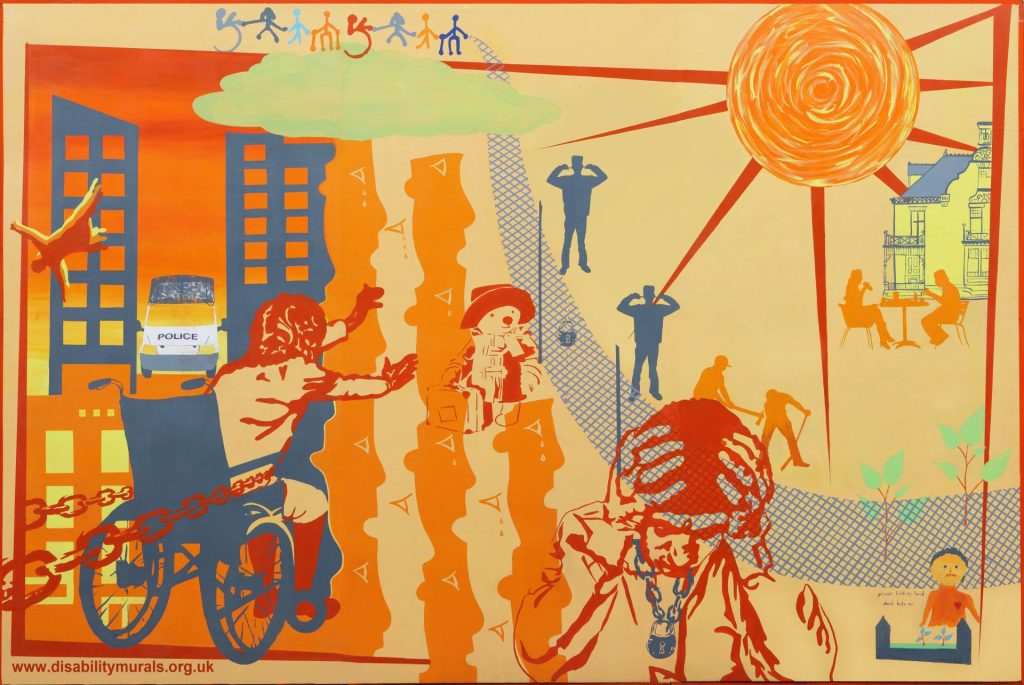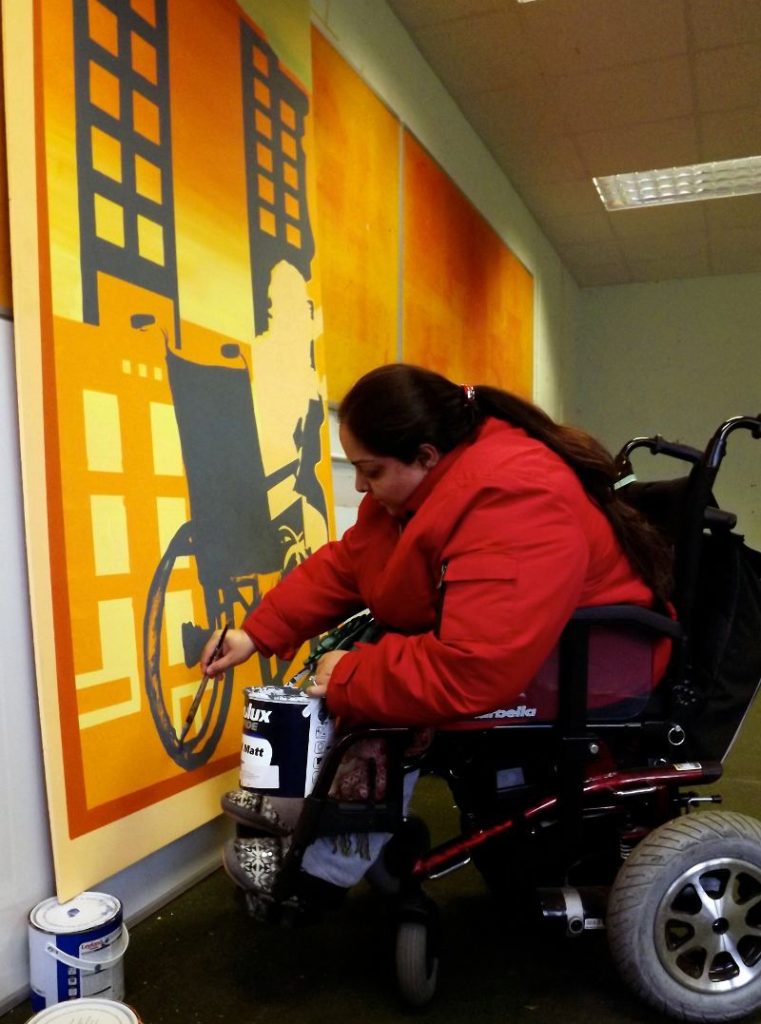By Rebecca Yeo.
The distinction between deserving and undeserving individuals has always been core to immigration policy in the UK. However, the hostility and restrictions directed at those framed as ‘undeserving’ has steadily increased. The recently introduced Illegal Migration Bill takes these restrictions to a new level to include detaining and preventing new arrivals from even claiming asylum. The need to build effective opposition has never been more urgent. With this goal, it is important to consider the inequities of the current system, possible alternative approaches to resistance and the barriers that must be addressed.
The disabling impact of immigration controls
In 2012, then-Home Secretary Theresa May stated her aim to create a hostile environment. Subsequent legislation (Immigration Act, 2014; Immigration Act, 2016) was explicitly designed to restrict access to such necessities as housing, financial support and sense of safety. These policies prevent people from meeting their human needs. As one Disabled woman subject to asylum restrictions said to me: ‘If they are torturing someone they can’t expect that person to be okay.’ The Independent Chief Inspector of Borders and Immigration (ICIBI) acknowledges that ‘immigration control measures which deny access to services, can increase vulnerability.’ The result is to disable people with existing impairments, as well as to create new impairments. Immigration policy is actively and deliberately disabling.

Compassion in immigration policy
The hostility of immigration policy has always been combined with expressions of compassion. In her speech to the Conservative Party conference in October 2015, while setting out measures to create a hostile environment, Theresa May also proclaimed: ‘Let Britain stand up for the displaced, the persecuted and the oppressed. For the people who need our help and protection the most.’ Similarly, current Prime Minister Rishi Sunak asserts that he is ‘balancing’ his pledge to ‘stop the boats’ with assertions that ‘the UK remains a safe haven for the most vulnerable.’ Even the UK-Rwanda partnership includes a clause to allow for resettlement of some of ‘the most vulnerable’ refugees from Rwanda to the UK. This may be considered a welcome alternative to hostility. However, as the ICIBI asserts, Home Office efforts to identify ‘vulnerable individuals is a test not just of its competence but also of its capacity for compassion.’ Expressions of compassion towards ‘vulnerable’ individuals are not used to contest, but to reinforce, the legitimacy of hostility towards others.
A social model approach
Insights from the Disabled people’s movement could help focus resistance against the disabling impact of immigration policy. In 1976, the Union of Physically Impaired Against Segregation argued it is ‘society which disables.’ This principle was developed by disabled sociologist Michael Oliver, among others, to replace the individual approach of the charity model with what became known as the social model of disability. This approach calls for collective responsibility to address the disabling impact of inequities faced by people with impairments. A similar approach could focus on resisting the disabling restrictions imposed on people subject to immigration controls. Without negating the emotional and physical pain inherent in many forms of impairment, or in being forced to flee one’s home, effective resistance must challenge the socially constructed, and therefore changeable, injustices. A social model of immigration could bring together the Disabled people’s movement, people subject to immigration controls and allies of both, to build solidarity and collective resistance to the restrictions and inequalities of assumed human value, which underpin current injustices.
The barriers to change
It is meaningless to assert the need for a social model of immigration without acknowledging the barriers. Restricted access to services and support is a central tool of immigration policy. Barriers to change are not, however, exclusively at the level of the state.
Lived experience

(Photograph: Andrew Bolton.)
The social model of disability was developed by Disabled people rather than charitable organisations. However, when people are struggling for immediate survival, there is little capacity to lead resistance. As activist Manjeet Kaur explained to me just months before she died, in the face of immediate struggles as a Disabled asylum seeker, ‘I don’t have the energy… I myself am in a floating boat, I can anytime fall down.’ The capacity for solidarity from the wider Disabled people’s movement is reduced by lack of information and individual struggles in the context of an ever more punitive welfare state. The mantra of the Disabled people’s movement ‘nothing about us, without us’ is as valid as ever, however, the solidarity of allies has never been so important.
Voluntary sector
The asylum voluntary sector may be the obvious source of solidarity. However, rather than seeking advice and collaboration from the Disabled people’s movement, all too often asylum voluntary sector organisations have endorsed Home Office and local authority initiatives towards individuals considered ‘vulnerable’ as if this approach is better than nothing. Of course, some compassion is better than none, but these initiatives adopt a regressive individualistic approach to disability. Like most progressive ideas, the social model of disability and associated concepts have been widely co-opted and distorted to remove demands for systemic change. This risks undermining key struggles of the Disabled people’s movement, including demands for the services and support necessary for independent living as enshrined in the UN Convention on the Rights of Disabled People. A broad-based movement of solidarity is needed to focus on addressing causal injustices.
Public response
Collective resistance is further hampered by lack of public concern. Response to the COVID-19 pandemic exposes how publicly acceptable it is to treat some lives as disposable. The majority of people who have died from COVID are Disabled. Yet public response to this knowledge is not to take collective responsibility to reduce the risk, but instead to remove precautions and leave the responsibility with individuals. The result is to exclude anyone concerned about infection from public space, with at least #Forgotten500k facing the fourth year of lockdown.
Widespread disregard for the value of certain lives may increase the barriers to effective action but if current inequalities are socially constructed the issue is not whether change is possible but how it can be achieved. Systemic change may appear unrealistic, but as author and disability activist Ellen Clifford writes: ‘We have no choice. The stakes have become too high’.
Rebecca Yeo is completing a postdoctoral fellowship at the University of Bristol on refining and promoting a ‘social model of asylum’ as a tool to transform responses to disability and forced migration in the UK. Her work draws on her involvement in the Disabled people’s movement and what she has learned from disabled people seeking asylum.
A recording of Rebecca’s webinar, ‘A social model of asylum: disablement and resistance in the British asylum system,’ is available here. This was part of a webinar series co-hosted by MMB and GRAMNet on ‘The Health of Migrants and the Right to Health.’ A recording of MMB’s emergency discussion on the 2023 Illegal Migration Bill can be watched here.
Previous post by Rebecca Yeo: ‘The power of collaborative art in research for social change,’ 8th March 2022.

